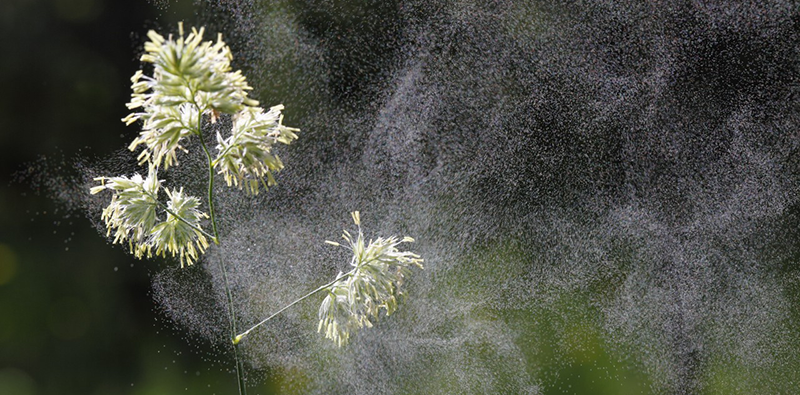Why Do You Get Allergies?

Why do you get allergies? Your immune system is on the warpath, triggering your allergy symptoms. Learn what is causing your sniffles and sneezes and why.
Your nose swells and your eyes run at the slightest whiff of pollen or pet dander — but why? A cascade of events happens deep inside your body to launch the allergic process, triggering the symptoms that make you feel awful.
Here’s an inside look at allergies and why they develop.
YOU MIGHT ALSO LIKE: The Difference Between Spring and Fall Allergies
Your immune system
Your immune system is a military-like operation, armed and ready to protect your body. It seeks out and destroys foreign invaders like bacteria and viruses before they can attack and make you sick.
Your immune system differentiates foe from friend, looking for proteins on the surface of cells called antigens. Bacteria and viruses have different antigens than your native cells. When your immune system spots outsider antigens in your body, it recognizes them as foreign and launches an attack, releasing an army of white blood cells to fend off the invaders.
Your immune cells release proteins called antibodies, which lock onto foreign antigens and neutralize them. The antibodies stay in your body, acting as a kind of early-warning system. So, once you’ve been exposed to a certain antigen — like chickenpox — for the first time, your body will recognize the virus each subsequent time it tries to invade.
Why you get allergies
Pollen, dust, peanuts, and pet dander aren’t normally harmful to your health. They won’t attack your cells or make you sick. Yet in people with allergies, your immune system mistakes substances that get into your body through your mouth, nose, or skin as dangerous invaders. Antibodies it produces during the first attack herald the arrival of those substances every time they arrive, leading to future allergy attacks.
During an allergy attack, your body releases a type of antibody called immunoglobulin E (IgE). IgE causes your body to release chemicals, including histamine. The chemicals cause the symptoms of an allergic reaction. In some people, the reaction is mild, with symptoms like a stuffed nose, sneezing, and runny eyes. Other people have a more severe reaction, with potentially life-threatening symptoms, such as swelling of the tongue and throat.
The genetic link
Some people are more likely to have allergies than others. Part of the reason lies in genes. Just as you might have inherited your mother’s blond hair or your father’s dimples, you can inherit their sensitivity to ragweed, dust, or cat dander.
Researchers are trying discover exactly which genes are to blame for allergies. In one study, researchers linked a specific region on the human genome to peanut allergies in children.
Allergies and the environment
Environmental factors can also lead to allergies. Kids who are exposed to secondhand smoke in the womb or during the first few months of life are more likely to develop allergies as they grow.
On the other hand, getting exposed to dirt, dust, pet dander, and even roach droppings during the first year of life may help kids avoid allergies, according to a study in the Journal of Allergy and Clinical Immunology.
“What this tells us is that not only are many of our immune responses shaped in the first year of life, but also that certain bacteria and allergens play an important role in stimulating and training the immune system to behave a certain way,” said Robert Wood, MD, chief of the Division of Allergy and Immunology at the Johns Hopkins Children’s Center.
Can you outgrow allergies?
Some kids eventually do grow out of their allergies. With time, the immune system can become less sensitive to allergens like pollen, mold, or dust. Sometimes, though, a child can grow out of one allergy, only to develop another allergy as he or she gets older. That’s why it’s important to stay vigilant, and to get retested periodically to see if triggers have changed.
YOU MIGHT ALSO LIKE: What's the Difference Between a Cold and an Allergy?
Updated:
September 01, 2023
Reviewed By:
Janet O’Dell, RN